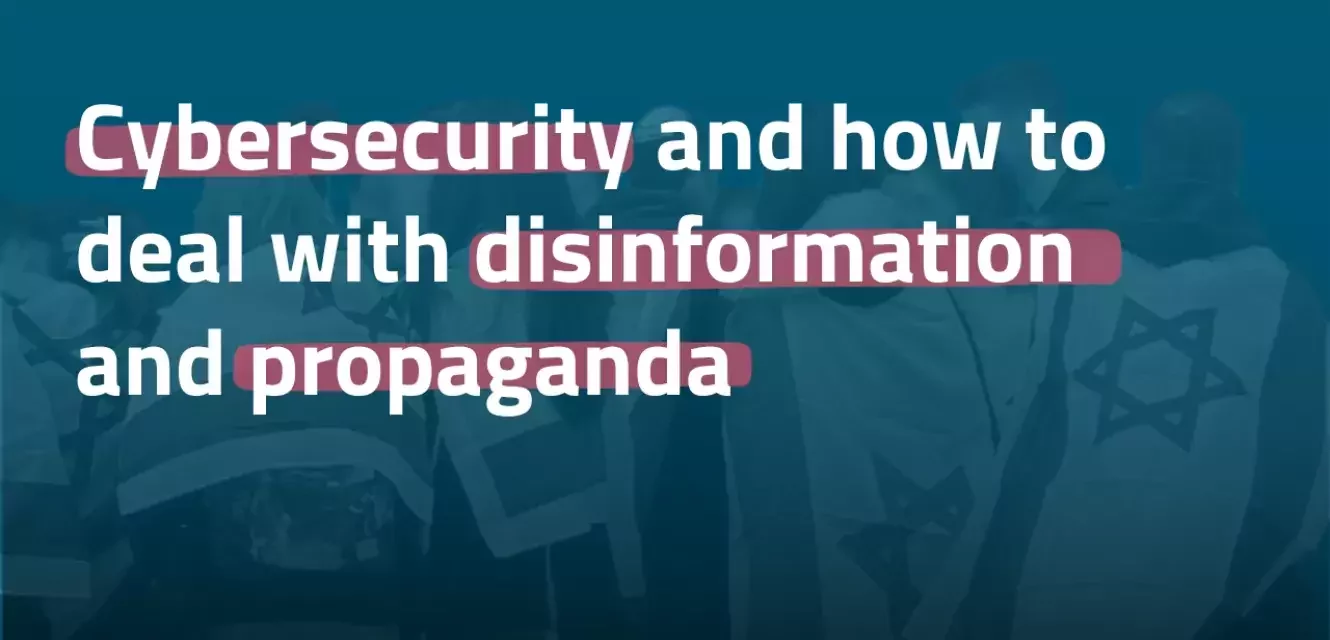Cybersecurity and how to deal with disinformation and propaganda

Propaganda and disinformation have long been used as a weapon and part of psychological warfare in terror, wars and armed conflicts. The goals of such campaigns are often attempts to steer public opinion in a certain direction and to cause uncertainty and pain. Wars nowadays also increasingly take place in cyberspace. Antisemitic content is spreading at an enormous speed. That's why it's important to be especially careful now.
Be careful which apps you download: In the past, Hamas has distributed manipulated apps to obtain information from Israelis (for example, dating apps or Red Alert) or to spread misinformation. Download only apps that you know and trust.
Share private information only with people you trust: Hamas has tried to hack the cell phones of Israeli soldiers in the past. There are various reports that Hamas has used the cell phones of kidnapped people. During the pandemic, zoom rooms of Jewish people were specifically infiltrated. Be careful to share private information only with people you trust.
Secure your social media profiles: There are several ways to make your social media profile more secure against hacking:
- Change your passwords regularly.
- Use password managers and don't use the same passwords everywhere. This is probably how the accounts of a million people on the 23andMe database became accessible to hackers. Here you can check if passwords were part of leaks: https://haveibeenpwned.com/.
- Use VPN and secure networks
- Uses 2-factor authentication. Right now, antisemites often target Jewish or solidarity accounts.
- Look at the privacy settings of your social media and private messengers. Can others see your number, your pictures? Can they see where you are?
- Be wary of friend requests from accounts you don't know. Look at when the accounts were created. Be careful with new accounts.
Spread only qualified and verified information: Right now, purposefully scattered misinformation is spreading enormously fast. In particular, the Twitter or X platform is being flooded with disinformation by Hamas to an extent that has hardly been seen before. But other platforms are also being targeted. Make sure that information from public media, civil society organizations or journalists has been confirmed before sharing information from private accounts. Messenger services are also used to spread fake calls for help. Therefore, do not forward messages that have already been forwarded many times or whose originator you do not know.
Take care of your mental health: The content that is being spread on social media currently is incredibly cruel and devastating. These images can cause people to develop psychological trauma. Here are some tips on how to reduce your own exposure: https://www.bellingcat.com/resources/how-tos/2018/10/18/prevent-identify-address-vicarious-trauma-conducting-open-source-investigations-middle-east/
With the support of Pia Lamberty (social psychologist und Co-CEO of CeMAS)
